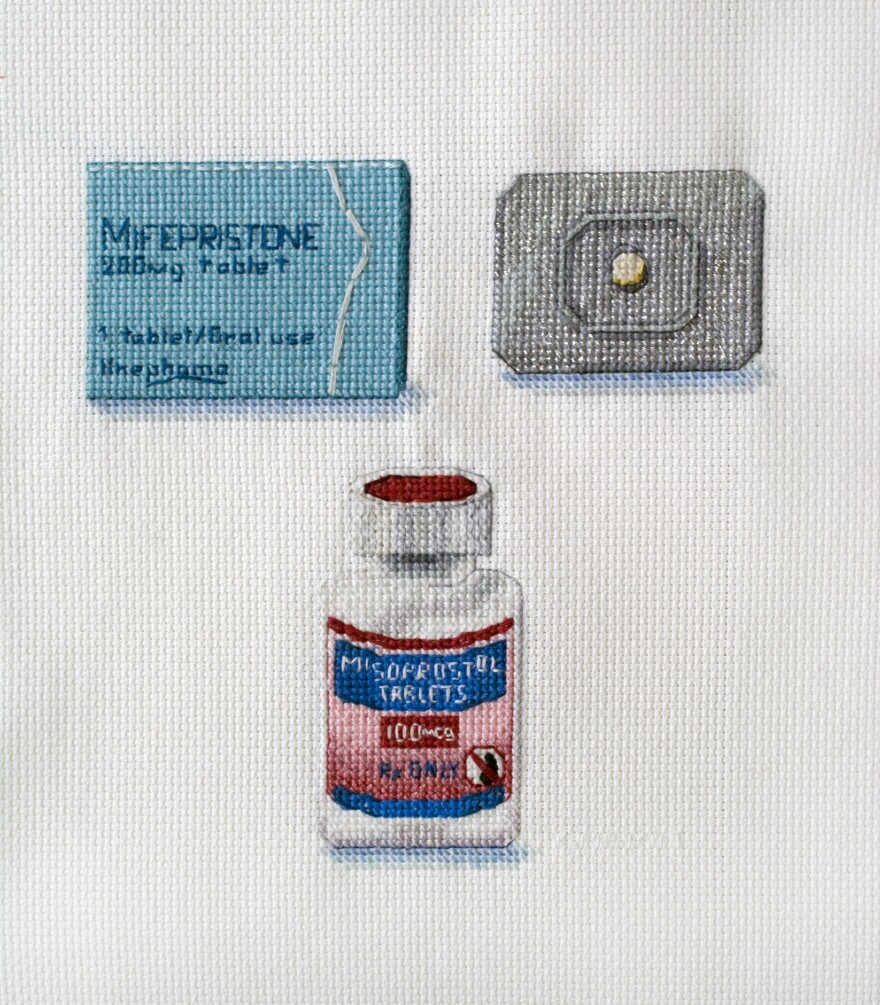Lewis-Clark State College in Lewiston has removed artwork from a new exhibit at its Center for Arts and History, citing a state law that prohibits public funds be used to pay for or promote abortions.
The exhibit, called Unconditional Care: Listening to People’s Health Needs , opened Friday and was set to include four pieces from Brooklyn - based artist Lydia Nobles. A few days before the opening, she was told her series of audio and video interviews featuring four women talking about their own experiences around abortion violated Idaho law. Her work was then pulled from the gallery.
Nobles said she’s troubled by the censorship.
“I think of a college as really this place where you get to see all these different perspectives and then you get to choose what makes sense for you and who you are and who your family is and what type of culture you come from,” she said.
Nobles said she feels her voice and the voices of the women featured in her art are being silenced. Many of them had never shared their stories publicly. Nobles said artists have a responsibility to share the stories they collect with integrity and her art does not promote abortion but presents information about the realities of women’s experiences.
“The way the college handled the situation was not appropriate at all,” she added.
In a brief statement, the college confirmed it removed items from the exhibit, citing Idaho Code Section 18-8705, but did not provide further clarification on its interpretation of the statute.
“No person, agency, organization, or any other party that receives funds authorized by the state, a county, a city, a public health district, a public school district, or any local political subdivision or agency thereof may use those funds to perform or promote abortion, provide counseling in favor of abortion, make referral for abortion, or provide facilities for abortion or for training to provide or perform abortion,” the law reads.
Speaking from New York, Nobles said she submitted the work earlier this year after she was selected.
“It's basically saying , 'You can’t make your own decisions. So I'm going to make one for you and I'm going to also limit the information that's available to you, '” she said.

Other exhibitors who mentioned abortion also saw their work censored. Chicago - based artist Michelle Hartney showcased a transcribed version of a historical letter from a woman in the 1920s asking reproductive rights activist Margaret Sanger for help getting birth control.
In it, the woman writes that doctors refused to help her and says , “I just came back from the hospital and am too weak to write [...] I have three living children now and in 1918, I had a serious operation. Since that, I lost one child at birth and had two abortions, the last I was five and one-half months.”
At the time, Sanger received hundreds of thousands of letters from women trying to circumvent the Comstock act of 1873 which made it illegal to possess, sell or distribute “obscene” materials, including information related to contraception or abortions.
“I am getting weaker and losing weight and color, but with all my pleas with doctors, they won’t do anything for me,” the letter repurposed by Hartney says.

Lewis-Clark Stat e College removed Ha rt ney' s piec e hours before the exhibit was set to open and did not give Hartney an explanation why.
“I'm worried about birth control access now and really wanted to highlight the voices of these folks from the past,” she said speaking from Chicago, adding that her other pieces dealing with maternal mortality that do not mention the word “abortion” were kept up.
“It's scary to know that we're now living in a country where art is being censored for speaking about the existence of abortion,” Hartney said.
In a letter sent Friday to the school, the ACLU of Idaho and the National Coalition Against Censorship condemned the college’s action.
In a released statement, Speech, Privacy and Technology Project attorney Scarlet Kim said the college’s decision “deprives the public of a critical opportunity to engage in a broader conversation” and “jeopardizes a bedrock First Amendment principle that the state refrain from interfering with expressive activity because it disagrees with a particular point of view.”
The statute referenced by the c ollege does not define what constitutes promotion of abortion, causing confusion at public institutions since it went into effect last year. In September, the University of Idaho received national attention when it cited the same law warning its employees they could face termination if they didn’t remain neutral in discussions about abortion.
A Lewis-Clark State College representative declined to answer questions asking for clarification.
“The silver lining of the situation is that people are talking about how free speech is also being infringed upon with these laws that are supporting abortion bans,” Nobles said.
Abortions in Idaho are banned except in the case of rape, incest or if the life of the mother is endangered.
The ar t exhi bit Un con ditional Care : Listenin g to P eople' s Healt h Nee ds opened to the public Marc h 3 and will be up until April 23.
Copyright 2023 Boise State Public Radio News. To see more, visit Boise State Public Radio News. 9(MDA5MzE4MDYzMDEzMzQyNTcyNTY4NDMyNw001))






